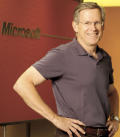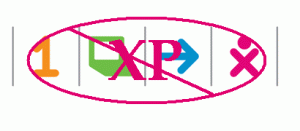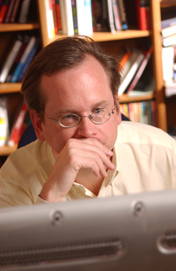 Today at Seattle University Law, Andrew Culbert spoke on Patent Law and Trolls. Andy is associate general counsel at Microsoft in charge of patent litigation. This is the second time I have seen him speak; he was one of the session leaders at Lewis and Clark’s CLE on non-obviousness.
Today at Seattle University Law, Andrew Culbert spoke on Patent Law and Trolls. Andy is associate general counsel at Microsoft in charge of patent litigation. This is the second time I have seen him speak; he was one of the session leaders at Lewis and Clark’s CLE on non-obviousness.
Andy started the presentation with some statistics from Troll Tracker, a patent blog that I highly recommend. Last year 35 Fortune 100 companies had been sued 500 times for patent infringement. This is an average of 14 times per company for patent infringement. Microsoft tops this list with 43 suits last year.
The first topic was, “Why is Microsoft getting sued?”
1. Large verdicts from juries, which are often overturned
2. Most cases are NOT filed by competitors but instead by Trolls
3. Recent trend, post-1980, to allow a liberal approach to patent claims
4. Consolidation of patents to the Federal Circuit
5. Little to no documentation for prior art on software
6. Patents w/o clear limitations (Software patents are often functional and nonspecific)
7. Integrated products which allow a relatively minor patent to claim against a large product like Windows or Office
8. Damages are astronomical in the US, $500M to $1.5B, several times larger then anywhere else
One of the most interesting parts of the talk was a list of Supreme Court cases that reflect improvements in the patent system:
Ebay — Limits on injunctions
KSR — New rules on obviousness
MedImmune — Easer to challenge patents
AT&T — Limits on territorial scope
LEG v. Quanta (Currently on review by the Supreme Court) — May expand patent exhaustion
Also from the Federal Circuit Court:
Seagate – limits on willful infringement
Nuijten /Comiskey – limits on patentablity
FFIP was able to get in one Question at the end of the talk:
What legislative changes do you think would make the most significant positive changes for the patent system?
Answer(paraphrased):
1. Changes to Damage calculations. The current damage formula allows for extremely high damage awards that encourages questionable litigation.
2. Possibly Venue reform. It is difficult to limit venue for real claimants, but reform that limits nonpracticing entity or shell cooperations could make a difference. It is just not an easy rule to craft and allow real claims to bring suits in home jurisdictions.
This was a great presentation. Thanks to the speaker Andy Culbert, The IPLS at SU who sponsored the presentation and Apollo Fuhriman, a 2L who organized the event.
Photo by: Dan Schlatter
 At LinuxFest NW 2008, this last weekend, our OLPC was by far the most popular thing at the FFIP table (second was the bad Vista stickers from FSF). We could have easily sold 10 OLPC’s at Linuxfest if they were available. At the same time we were showing off OLPC, Mircosoft and Negroponte were announcing that they are working together.
At LinuxFest NW 2008, this last weekend, our OLPC was by far the most popular thing at the FFIP table (second was the bad Vista stickers from FSF). We could have easily sold 10 OLPC’s at Linuxfest if they were available. At the same time we were showing off OLPC, Mircosoft and Negroponte were announcing that they are working together. 


